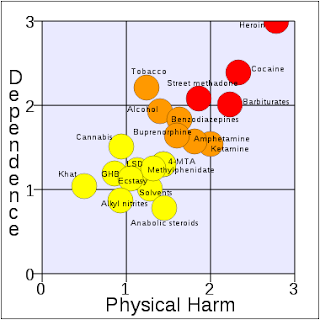
About four years ago, Ostler's classic book
Empires of the Word was re-published. The book is a popular edition of his years of reading and writing scholarly papers on historical linguistics in all the language families. At one point Ostler, an Oxford University professor while writing the book, briefly noted that at no point has anyone ever analyzed languages for their
survival value. In other words, from an evolutionary standpoint perhaps not all languages are created equal.
Is the curious absence of scholarly inquiry a product of over-Political Correctness? It could be. As Pinker recently bemused: contemporary scientific research is beginning to brush shoulders with a new opponent. But this time the perpetrators of scientific injustice are new. No longer are the opponents of free and open scientific progress clerics or bishops. (That is not to say these traditional enemies do not survive in the pockets of the world). These new opponents are politicians, general public, or unqualified scientists. For an example of this one need only turn to the debate on global warming. Statistically, most scientists opposed to global warming theory are meteorologists or geologists - specifically petroleum geologists (which makes you wonder if it's really scientific truth they are interested in when their jobs depend on fossil fuel consumption) - not climatologists, 97% of whom agree that humans are causing the climate to, on average, get warmer over the long-term as a result of rising CO2 emissions. Hyper-PCness could be one explanation. Or maybe most linguists simply do not believe languages have different survival values. There is also the possibility that linguists have simply overlooked this low-lying fruit. But I don't think any of these are good explanations.
What I think is more likely is that it's nearly impossible to definitively produce evidence that a language will not change to adapt to its surroundings just as quickly as its surroundings change. For instance, languages that do not have distinct concepts of color might easily create separate categories for colors once the need presents itself. But whatever the reason for the silence, Ostler's idea that some languages are "better" than others is a compelling one. But how would one go about creating a criterion for "better" languages? Languages can quickly change or add words to match the needs of the individual. Grammar structure changes slowly but I doubt this would vindicate Ostler. If a language says "the red on the chair" instead of "the red chair", will the brevity of the latter example really contribute to a society's survival? As long as the language can manage to tell another gatherer that there is fruit on the tree outside the village, it doesn't matter which way the person goes about saying it.
So on a microscopic level, Ostler's speculation seems to be a dead end. But what about linguistic conceptions of social values? It is here that I believe we could begin to judge languages. A language that emphasizes sexual looseness could become the language of a community devastated by sexually transmitted diseases. No language study, then, could clearly separate the social values from the linguistic factors. Instead, linguistics would simply be a contributing force in a greater confluential problem for a society. Ah, but now we are back to the older problem as before - that there is no reason to suggest that that the language is merely the arbitrary tool - the effect and not the cause. Just as a community can easily invent new words to suit the given situation, so too will they modify semiotic values to match their cultural mores. Professor Ostler's book is a fantastic one, but here I think he is without scientific (linguistic or otherwise) ground to stand on.
 National Geographic's feature article provides a nice overview of the present state of adaptive technologies. The graphic presentation is really cool. The eye surgery video is simply shocking, and shows, to my mind, that retinal implants are the fastest area of progress in the last five years.
National Geographic's feature article provides a nice overview of the present state of adaptive technologies. The graphic presentation is really cool. The eye surgery video is simply shocking, and shows, to my mind, that retinal implants are the fastest area of progress in the last five years.





